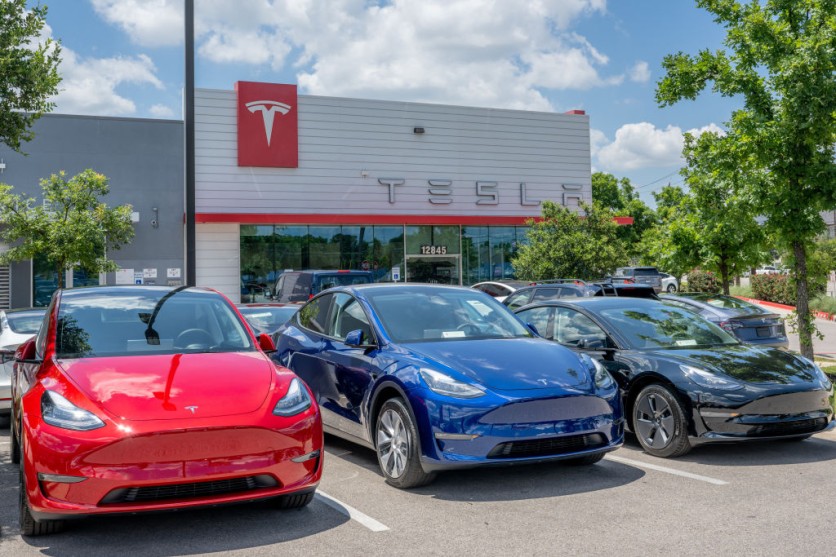
Tesla dropped US Model 3 and Model Y prices after Q3 deliveries missed expectations. The company aims to deliver 1.8 million electric vehicles by year's end.
The Tesla price cuts range from 2.7 to 4.2 percent. Tesla's website lists the Model 3 sedan at $38,990, down $1,250, and the Model Y long-range at $48,490, as reported by Reuters. Discounts were also applied to more costly models.
Since the start of the year, the ordinary Model 3 has dropped by over 17% and the long-range Model Y by over 26%. Tesla lowered prices in January to encourage sales in an uncertain economy and compete with Ford and BYD.
Tesla's shares plummeted 2.1% after the announcements of these price revisions due to concerns about the EV manufacturing company's industry-leading profit margins dipped to a nearly four-year low in second quarter.
Tesla, headquartered at Austin, Texas, will report its Q3 earnings on Oct. 18.
Lagging Behind 2023 Delivery Target
Late last year, Tesla began lowering prices abroad to encourage demand amid concerns about weak consumer spending in key markets including the US and China. However, the most recent Tesla price cuts follow Tesla's Q3 car delivery data of 435,059, which fell short of analyst projections and represented a decrease from the prior quarter. Factory renovations caused production site disruptions, Tesla said. According to a previous TechTimes report, Tesla's third-quarter deliveries number still were a record showcasing the continued demand for electric cars.
Tesla's CEO, Elon Musk, has said publicly that the firm would prioritize increasing sales volumes above profit margins this year. That has so far generated dividend payments for the company, whose shares have increased by nearly 100% in 2023, per CNBC.
Read Also : US Lawmakers Push for RISC-V Chip Technology Restrictions Amid National Security Concerns
Kia, Hyundai Adopt Tesla EV Charging
In related news, Kia, Hyundai, and Genesis will equip their electric vehicles with Tesla-style charging stations in the US in Q4 2024. CNN reported that owners of these EV brands will be able to utilize Tesla chargers without any issues due to this change. Hyundai Motor Group includes all three brands, while Hyundai and Kia operate separately in the US.
According to Kelley Blue Book data, Hyundai, Kia, and Genesis are now the second-largest EV manufacturers behind Tesla, which is a significant development for Tesla's charging infrastructure. The three companies sold 37,800 EVs in the first half of 2023, but Tesla sold almost 330,000.
The Ioniq 5, Ioniq 6, and Kona Electric are the three fully electric vehicles Hyundai sells in the United States. The EV6 and Niro EV are offered by Kia, and the G80 sedan, GV70 SUV, and electric-only GV60 SUV are provided by Genesis. In 2025, Hyundai will provide adapters for older Hyundai automobiles with Combined Charging System connectors to use Tesla-style chargers.
Related Article : Ford Joins General Motors With Q3 Sales Surge Amid Ongoing Labor Strike


![Apple Watch Series 10 [GPS 42mm]](https://d.techtimes.com/en/full/453899/apple-watch-series-10-gps-42mm.jpg?w=184&h=103&f=9fb3c2ea2db928c663d1d2eadbcb3e52)


